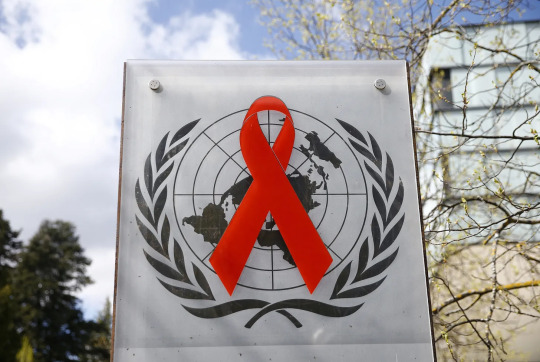#access control system in uk
Text
The system works by using a camera to capture an image of a person's face and then processing it through an AI algorithm to identify the person. The algorithm compares the image to a database of known faces and determines whether the person is authorized to access the building or not. If the person is authorized, the system will automatically unlock the door for them.
Access Control System Abu Dhabi
Access Control System uae
Access Control System Dubai
Access Control System in Abu Dhabi
Access Control System Saudi Arabia
Access Control system
access control system suppliers in uae
access control system suppliers in Abu Dhabi
biometric access control system dubai
biometric access control system alain
access control system devices
access control system devices Dubai
access control system devices Abu Dhabi
access control system devices in Bur Dubai
access control system in sharjah
access control system installation
access control system installation Dubai
access control system installation Abu Dhabi
access control system installation in Alain
#access control system in abu dhabi#access control system#access control system in uae#access control system dubai#access control system in ajman#access control system in alain#access control system in bur dubai#access control system in sharjah#access control system in saudi arabia#access control system bur dubai#access control system in uae#access control system in bur dubai#access control system in uk#access control systems uae#access control systems in sharjah#access control system in sharjah
0 notes
Text
notes/replies on that last post (about Florida moving to ban all HRT for adults) suggest it was struck down by a judge, which is a relief obviously. but i do wanna pick up on the response being "set up DIY networks for HRT! organise and help each other!" which is cool and all but... as the latest reblog comment points out, T is a controlled drug.
some quick and dirty googling confirms testosterone is a Schedule III controlled drug in the USA, with most legal sources suggesting possession and/or distribution of Schedule III drugs is a 3rd degree felony. conviction can mean up to five years in prison and a $5,000 fine. crucially, in Florida (where this law was intended to come into force), selling or distributing a Schedule III drug to minors pushes it up to a 2nd degree felony with a harsher fine/sentence.
i make this point because the response to HRT being restricted is often some variation of "mutual aid DIY network" or just flat suggesting DIY to people as the solution. which is cool if you're on estrogen, but possessing testosterone without a prescription is a literal felony in the USA. T is also a controlled drug in the UK, where trans people face long waiting lists for HRT - it's not illegal to possess T for personal use, but it is illegal to get them sent to you from abroad (importing a controlled drug) and to give them to other people (supply). to legally get T you need a prescription from a doctor.
in a hostile transphobic environment there is no guarantee that prosecuters will decide not to charge trans people for DIYing HRT. "set up DIY networks" for transmascs basically translates to "set up an illegal drug ring".
this is a form of transphobia that affects transmascs but does not affect transfems. it also affects nonbinary and intersex folks seeking or using testosterone HRT. in fact it could potentially impact some nonbinary trans folks worse because the medical gatekeeping around trying to transition as nonbinary is already an uphill struggle.
it is not easy for those of us on T to just DIY it and fuck the system. without a valid prescription our HRT becomes a banned illegal steroid that can land us in serious legal trouble if we get caught, especially if we're distributing it to other people as part of a mutual aid setup. i know we're all very "be gay do crime" for the memes but we are talking about an actual factual go-to-jail-irl crime here.
the fact that our HRT is an illegal drug unless prescribed by a doctor is a form of transandrophobia that affects trans men, transmascs, nonbinary people on masculinising HRT, and intersex people who want or need testosterone. it means that:
we cannot DIY transition without committing a crime, and have to weigh up that risk when considering DIY as an option
setting up a mutual aid testosterone DIY network is even more of a crime, especially if you want to use it to help trans teens
we are thus more dependent on placating medical practitioners and convincing them to prescribe us HRT
we will always be more impacted by any moves to restrict or delay access to HRT because we don't have an easy, legal DIY option
when access to HRT is limited for transphobic reasons, the DIY option comes at much higher risk
where access to HRT is severely delayed (as it is in the UK by years-long waiting lists), it is easier for transfems to start DIYing while they wait than it is for transmascs to do the same thing. in fact in the UK they've started selling estrogen HRT over the counter for menopause, so here if you want to start estrogen DIY all you have to do is get a cis lady friend to ask a pharmacist for menopause treatments. if you wanna start T you have to go on the fucking dark web (I'm exaggerating but... not a lot)
none of this is intended to suggest that transfems don't experience medical transphobia or gatekeeping and this isn't a "trans men have it worse universally across the board" post. there are undoubtedly some areas where it's harder to be transfem. however, this is one area where it is clearly and demonstrably harder to be a trans man. i am pointing this out because i keep seeing people saying that transmascs have it easier or there's no systemic or structural transphobia targeting trans men or we only ever experience misdirected misogyny or whatever. here is your proof that that is not true. this is a form of structural and systemic transphobia that impacts trans men and not trans women. and there is no possible world in which you can argue that testosterone being a controlled drug is somehow misogyny.
#'set up diy networks to pass around hormones!' brenda i could go to jail for 14 years. I'm not fucking joking#transandrophobia#transphobia#trans issues
1K notes
·
View notes
Text
The Best News of Last Week
1. ‘It was an accident’: the scientists who have turned humid air into renewable power
Greetings, readers! Welcome to our weekly dose of positivity and good vibes. In this edition, I've gathered a collection of uplifting stories that will surely bring a smile to your face. From scientific breakthroughs to environmental initiatives and heartwarming achievements, I've got it all covered.

In May, a team at the University of Massachusetts Amherst published a paper declaring they had successfully generated a small but continuous electric current from humidity in the air. They’ve come a long way since then. The result is a thin grey disc measuring 4cm across.
One of these devices can generate a relatively modest 1.5 volts and 10 milliamps. However, 20,000 of them stacked, could generate 10 kilowatt hours of energy a day – roughly the consumption of an average UK household. Even more impressive: they plan to have a prototype ready for demonstration in 2024.
2. Empty Office Buildings Are Being Turned Into Vertical Farms

Empty office buildings are being repurposed into vertical farms, such as Area 2 Farms in Arlington, Virginia. With the decline in office usage due to the Covid-19 pandemic, municipalities are seeking ways to fill vacant spaces.
Vertical farming systems like Silo and AgriPlay's modular growth systems offer efficient and adaptable solutions for converting office buildings into agricultural spaces. These initiatives not only address food insecurity but also provide economic opportunities, green jobs, and fresh produce to local communities, transforming urban centers in the process.
3. Biden-Harris Administration to Provide 804,000 Borrowers with $39 Billion in Automatic Loan Forgiveness as a Result of Fixes to Income Driven Repayment Plans

The Department of Education in the United States has announced that over 804,000 borrowers will have $39 billion in Federal student loans automatically discharged. This is part of the Biden-Harris Administration's efforts to fix historical failures in the administration of the student loan program and ensure accurate counting of monthly payments towards loan forgiveness.
The Department aims to correct the system and provide borrowers with the forgiveness they deserve, leveling the playing field in higher education. This announcement adds to the Administration's efforts, which have already approved over $116.6 billion in student loan forgiveness for more than 3.4 million borrowers.
4. F.D.A. Approves First U.S. Over-the-Counter Birth Control Pill

The move could significantly expand access to contraception. The pill is expected to be available in early 2024.
The Food and Drug Administration on Thursday approved a birth control pill to be sold without a prescription for the first time in the United States, a milestone that could significantly expand access to contraception. The medication, called Opill, will become the most effective birth control method available over the counter
5. AIDS can be ended by 2030 with investments in prevention and treatment, UN says

It is possible to end AIDS by 2030 if countries demonstrate the political will to invest in prevention and treatment and adopt non-discriminatory laws, the United Nations said on Thursday.
In 2022, an estimated 39 million people around the world were living with HIV, according to UNAIDS, the United Nations AIDS program. HIV can progress to AIDS if left untreated.
6. Conjoined twins released from Texas Children’s Hospital after successfully separated in complex surgery

Conjoined twins are finally going home after the pair was safely separated during a complex surgery at Texas Children’s Hospital in June.
Ella Grace and Eliza Faith Fuller were in the neonatal intensive care unit (NICU) for over four months after their birth on March 1. A large team of healthcare workers took six hours to complete the surgery on June 14. Seven surgeons, four anesthesiologists, four surgical nurses and two surgical technicians assisted with the procedure.
7. From villains to valued: Canadians show overwhelming support for wolves

Despite their record in popular culture, according to a recent survey, seven in 10 Canadians say they have a “very positive” view of the iconic predators.
Here's a fascinating video about how wolves changed Yellowstone nat'l park:
youtube
----
That's it for this week :)
This newsletter will always be free. If you liked this post you can support me with a small kofi donation:
Support this newsletter ❤️
Also don’t forget to reblog.
1K notes
·
View notes
Text
The Cass Report is fatally flawed in its methodology, and as a result, its recommendations are harmful. Speaking on behalf of TransActual, Keyne Walker said: “It undermines the legal competence of both children and adults to access medical treatment and dismisses almost all existing clinical evidence on trans people’s healthcare by applying impossible evidence standards which, if applied to other medicines would invalidate more than three quarters of the existing treatments used in paediatric care which, like puberty blockers, are currently being prescribed off-label.”
The report’s primary conclusions rest on excluding 98% of the relevant evidence on the safety and efficacy of puberty blockers and hormones for lack of blinding and controls. What this means is that they require studies in which some patients are given the treatment, and others are unknowingly given placebos. This is not only a clear breach of medical ethics and monstrous suggestion, but also impossible due to the obviousness of the impacts of puberty blockers and hormones.
The report also strays far beyond its scope and competence in recommending a review of adult services and in suggesting that young people ought to stay under the care of children and young people’s services until the age of 25. The latter is based on highly questionable understandings of brain development which have been repeatedly debunked as an oversimplification of the constant changes in human neurology over the course of our lives. This recommendation, especially in a context of an already broken system of care for both adults and children, has the potential to have a significant negative impact on the lives and wellbeing of trans people in the UK.
Underpinning this report is the idea that being trans is an undesirable outcome rather than a natural facet of human diversity. This is clear not only from the recommendations but also from the exclusion of trans researchers from the design of the review process and the links individual members of the research team have to anti-trans groups, which the Cass team were warned about.
Download the full briefing
233 notes
·
View notes
Text
I came across the surname Baskerville in a text completely unrelated to Sherlock Holmes (in a book about wild camping), and it's gives some really interesting insight into the history and present state of UK inherited titles and landownership so thought I would share!
'William the Conqueror invaded England in 1066 and then made himself king. It was like any other invasion of conquest, in any other time or realm. King Harold the Second was dead. Long live the King. Life goes on. But there was a difference. New laws saw all of the land seized by the Crown - a relatively unique development in the history of conquest. Sasxon barons were replaced by the Norman lords and their allies. The Domesday Book - the most definitive land registery document every devised - was produced on William's orders in 1086 to identify the new owners and their land holding and what they might owe, in tax, favour and loyalty, to the king: the sovereign Landlord.
Landownership had worked broadly in the same way ever since our ancestors abandoned the nomadic life, and took up the shovel and plough about 10.000 BC. What the Normans changed in Britain was the communal right of access over the land. That system of non-communal access is still very much in force today amoung the modern-day descendents of the Normans. Which is why William's 1086 census - the Domesday Book (and its modern version, the Land Registry) - remains so important. It serves as a legal document that established ownership by the legal holder of the title.
My research into where I could roll out a sleeping bag today meant looking at landownership. I discovered that very little had changed sinde the Norman invasion. Just 0,6 per cent of the population still owns 50 per cent of the British land, and most of this elite are the descendants of the 11th-century Norman aristocracy.
A report - "Who owns Britain?' - by Country Life magazine in 2010 was said to be the most detailed survey of its kind in over 100 years. The research claimed that just 1200 aristocrats and their families own 20 million of Britain's 60 million acres of land. The top private landowner in Europe was the Duke of Buccleuch and Queensberry, who owned 240.000 acres in England and Scotland. Research by the London School of Economics in 2013 claimed that the Normans who conquered England - with surnames Baskerville, Darcy, Mandeville and Montgomery - still dominate the student rolls for Oxford and Cambridge universities, still make up a large proportion of the elite that holds the prime positions in professions such as medicine, law and politics. They also control a good number of the political agencies, public bodies and charitable organisations that oversee rules regulating land management and access.
But 1066 was about more than Saxon lords losing their holdings. It was how it affected the peasants that mattered most. The common rights over common lands like Sherwood Forest and the Kentish Weald were gone. Those rights included the right to roam over woodlands, marshes, moors and coasts of many common areas; to graze animals, collect wood for fuel, tools and buildings, to eat fruits, to collect water from rivers and streams, to catch fish and generally to do all the things that made it possible to live off the land."
From: Wild camping. Exploring and sleeping in the wilds of the UK and Ireland, by Stephen Neale, page 29
I've been to the UK several times for hiking trips, and I remember being puzzled by the system of access to nature at first. It is quite bewildering to be just walking on a perfecty good path, only to suddenly find it fenced off, with aggressive signs warning walkers to KEEP OUT!!! Why are hikers treated with so much suspicion even in areas famous for its good hiking? And what do you mean by Right of Way? How come there's major roads and motor cross terrains within a national park? (turns out they are largely privately owned). Myself, I've never been shy to climb the occasional wall or fence, and pitch my tent somewhere even on private lands. I consider it my own gentle way of resisting the very idea of private property, which creates so much inequality.
I've never yet faced any trouble for it, by the way. Turns out land owners have little desire to actually hike on their lands, especially in rain or cold or darkness, and the people who work for them are usually not payed enough to care about a lonely hiker who is causing no disturbance or damage whatsoever xD
#letters from watson#sherlock holmes#the hound of the baskervilles#history#land ownership#wealth inherence#uk#common access laws
21 notes
·
View notes
Text
The practice of men and women sharing hospital rooms violates human rights and should be prohibited, a group of academics argues.
In a paper just published in the Journal of Medical Ethics, the researchers outline how mixed-gender hospital rooms go against the fundamental human rights of personal security and dignity.
Lead author Dr Cindy Towns, of the University of Otago, Wellington, says placing male and female patients in the same room “compromises the safety of female patients and threatens the dignity of all patients”.
“Risk of rights violations and subsequent harm is exacerbated by the high rates of physical, cognitive, and sensory impairment experienced by people in hospital wards.
“New Zealand needs to immediately adopt specific national policies prohibiting mixed-gender hospital rooms and mandating public reporting of breaches,” she says.
Despite being prohibited in the United Kingdom for more than a decade, the practice is common and increasing in New Zealand.
Previous research by the group showed mixed rooms were common in a major New Zealand public hospital – in the more than 160,000 admissions analysed, 48 per cent were affected by mixed-gender rooms. The prevalence also increased over the eight-year period studied, and disproportionately affected vulnerable older adults.
Health system reviews, patient surveys and media reports in Australia and the UK have highlighted increased distress and fear of assault among women in mixed-gender rooms.
“Being forced into a room with men when unwell and vulnerable – often separated by only a curtain – may be traumatising to many women, even if the perception of threat or danger isn’t realised. It’s not surprising that the practice has been a frequent topic of complaint in feedback from patients, their families and the staff who care for them.
“Mixed-gender rooms breach the psychological safety of these patients, but this is avoidable by changing bed management practices,” Towns says.
The researchers argue that hospitals need to be designed with single-occupancy rooms as the standard of care.
“The majority of patients prefer having their own room. It allows for visitor access without disturbing other patients, improves infection control and enhances the disclosure of private health information.
“It would also enable more respectful care for gender-diverse patients who may not identify with a male or female gender binary.”
Because redesigning or rebuilding hospitals would take time, even if support and financing were obtained, the researchers argue the best approach to respect patient rights and reduce harm is single-gender rooms.
“Male and female patients express a preference for single-gender rooms. For female patients, this preference is associated with fear of violence while for male patients it is expressed as general concern and discomfort.
“Respecting these preferences is essential to maintain patient dignity during their hospital stay.”
82 notes
·
View notes
Text
Right-to-buy council houses without specifically only releasing housing that already had a replacement built was of the most notable ways of the *many* that Thatcher et al screwed the UK.
I’d love to have a law put in place that landlords either have to sign contracts to provide housing under council house-type contracts with rent controls to people on housing benefit etc, or sell to the local council at compulsory purchase prices.
Same for all the houses not being lived in - use to house people under contractual controls, or have to sell to the council housing central fund.
Personally I’d start converting all the office units that are no longer needed because so many people are working remotely now into housing too.
Same for the huge city centre shops - I’m not sure if the pattern repeats elsewhere, but I live near Glasgow and the city centre has basically died since Covid. No one is renting the huge retail stores and the place is full of unhoused folk, which is a fucking scandal. So convert them into housing; let the buildings see use, and let those folks get off the streets. Pets and kids specifically allowed too - get families out of one-room shelters and into proper homes of their own.
I’ve heard that there would be issues putting in water infrastructure, but given the place is literally crumbling already and usage in so many areas is so low that having workers digging up the streets to install water lines wouldn’t cause enormous disruption, the time to do this is *now*. Build rainwater catchment and purification systems on roofs too - we get so much rain in the UK it’s kind of ridiculous not to use it! Some of that could go directly to drip irrigation in gardens, but plenty could go right into the houses/flats too. And of course this would provide tons of jobs in construction, architecture, planning etc etc.
Install gardens and green spaces around the place while you are doing this - offer some at low rent, or to buy cheaply, to market gardeners, but specifically put spaces in for communal gardens with the idea of offering allotments and encouraging people to grow their own food.
Put solar panels on every roof and integrate spaces for smaller wind turbines amongst the houses too. Huge storage batteries in basements to make the new blocks as low-footprint and self-sufficient as possible power-wise.
It would be a *fantastic* opportunity to create genuinely accessible housing - office buildings and shops already have lifts and wide corridors ideal for wheelchairs and other mobility devices, so keep that in the design when creating housing. There is a hidden epidemic of houselessness amongst disabled people and older folk with mobility needs, so create low-rent council housing that specifically fits those needs there.
It would regenerate the areas - all the smaller shopfronts not suitable for housing conversion would fill up with people offering the things people in residential neighbourhoods need, with a guaranteed payer base. People on low incomes *use* all of their incomes on necessities, so small businesses selling those necessities will do well. Offer small businesses low rents to provide those necessities. Any that don’t fill up, offer to charities and use for council staff offering the aid and advice people transitioning into housing actually *need*.
Carers are generally low-paid - so this would be an opportunity to offer them cheap housing close to a huge client base in the new accessible housing. No need for low-paid, mostly-female workers to dash constantly between clients in cars. They could walk to work and walk in between clients, who would also no longer be trapped in inaccessible homes, so people who are not actually bedbound would hopefully be less housebound.
Put rooms in the blocks for communal and co-op activities to reduce isolation - with the lifts and wide corridors, even people who are functionally housebound are likely to be able to make it to a room in their own building, and even quite young children could get to those places safely on their own if their parents are working. Wraparound childcare, paid and informal, near where folks actually live.
City centre areas that are now largely dead other than unhoused people, with limited and decreasing zero economic activity taking place and a decreasing incentive for businesses to set up there rather than in out-of-town retail parks people need to drive to, would become vibrant communities with every incentive for businesses to set up there, particularly for the small businesses that still employ the majority of people.
It wouldn’t take a lot to extend this model to transform those out-of-town business parks that are currently largely empty either; nothing says the businesses that are still there would need to move, and they would have a huge new pool of potential employees living within easily walkable distance, though there would need to be oversight to make sure places like Amazon didn’t attempt to buy them up and turn them into company housing. There would need to be a little more investment to provide green transport links like electric buses and trains so that it would be easier for small businesses to move in to provide services, but given the tax income that would result and the reduction in pollution the investment would probably pay itself back within a decade or so.
#a queer crip grows#housing#housing crisis#solarpunk#solutions#solutions to climate crisis#walkable communities#walkable cities#urban gardening#urban food growing#providing housing#ending homelessness#climate friendly#climate crisis#the future is accessible#accessibility#accessible cities#accessible communities
82 notes
·
View notes
Text
The US is widely seen as the global leader in artificial intelligence, thanks to companies like OpenAI, Google, and Meta. But the US government says it needs help from other nations to manage the risks posed by AI technology.
At an international summit on AI Safety in Seoul on Tuesday, the US delivered a message from Secretary of Commerce Gina Raimondo announcing that a global network of AI safety institutes spanning the US, UK, Japan, Canada, and other allies will collaborate to contain the technology’s risks. She also urged other countries to join up.
“Recent advances in AI carry exciting, life-changing potential for our society, but only if we do the hard work to mitigate the very real dangers,” Secretary Raimondo said in a statement released ahead of the announcement. “It is paramount that we get this right and that we do so in concert with our partners around the world to ensure the rules of the road on AI are written by societies that uphold human rights, safety, and trust.”
The US government has previously said advances in AI create national security risks, including the potential to automate or accelerate the development of bioweapons or to enable more damaging cyberattacks on critical infrastructure.
One challenge for the US, alluded to in Raimondo’s statement, is that some national governments may not be eager to fall in line with its approach to AI. She said the US, the UK, Japan, Canada, Singapore, and the European AI Office would work together as the founding members of a “global network of AI safety institutes.”
The Commerce Department declined to comment on whether China had been invited to join the new AI safety network. Fears that China will use advanced AI to empower its military or threaten the US led first the Trump administration and now the Biden administration to roll out a series of restrictions on Chinese access to key technology.
The US and China have at least opened a line of communication. A meeting between President Biden and Chinese president Xi Jinping in November saw the two superpowers agree to hold talks on AI risks and safety. Representatives from the nations met in Switzerland last week to hold the first round of discussions.
The Commerce Department said that representatives of the new global AI safety network’s members will meet in San Francisco later this year. A blueprint issued by the agency says that the network will work together to develop and agree upon methodologies and tools for evaluating AI models and ways to mitigate the risks of AI. “We hope to help develop the science and practices that underpin future arrangements for international AI governance,” the document says. A commerce department spokesperson said that the network would help nations tap into talent, experiment more quickly, and agree on AI standards.
The Seoul summit on AI safety this week is cohosted by the UK government, which convened the first major international meeting on the topic last November. That summit culminated in more than 28 countries including the US, members of the EU, and China signing a declaration warning that artificial intelligence is advancing with such speed and uncertainty that it could cause “serious, even catastrophic, harm.”
Amid rapid deployment of generative AI systems like ChatGPT last year, some prominent researchers and tech leaders began to speak more loudly about the potential for AI algorithms to become difficult to control and perhaps even a threat to humanity. Talk of the most far-off threats has since faded, but policymakers around the world are concerned about more immediate problems, such as the potential for generative AI tools like ChatGPT to spread disinformation and interfere with elections. In January, some voters in New Hampshire received robocalls using an AI-generated fake of Joe Biden’s voice.
Last October, President Biden issued a wide-ranging executive order to address the potential and pitfalls of fast-moving leaps in AI most evident with the startling abilities of ChatGPT. The Commerce Department was ordered to work on a number of initiatives to develop AI safety standards and also to develop a plan for global “engagement on promoting and developing AI standards.”
Biden’s executive order also required the US National Institute of Standards and Technology, which is part of the Commerce Department, to establish a US AI Safety Institute to systematically test AI models to understand how they could be misused and how they might behave.
11 notes
·
View notes
Text
EU’s proposed Chat Control law has become a bone of contention between members of the bloc. First proposed by the European Commissioner for Home Affairs Ylva Johansson in May 2022 as part of bloc’s push to combat child sexual abuse online, the framework of the bill has now come under fire, earning itself a derisive term “Chat Control”.
France, Germany and Poland have particularly refused to accept a clause that allows for mass scanning of private messages by breaking end-to-end encryption. Some tech companies, along with trade associations, and privacy experts have all vehemently opposed the regulation.
On the other hand, Interior Ministers of Spain and Ireland have supported the proposal. Separately, a network of organisations and individuals, advocating for children’s rights in Europe, have lashed out at EU leaders for failing to tackle child sexual abuse online.
What are the concerns of those against the proposal?
Scanning end-to-end encrypted messages has remained a controversial issue. That’s because there is no way to do this without opening risky backdoors that can be accessed by third parties who can exploit the vulnerability, in turn ending the promise of end-to-end encryption.
Tech firms that treaded the encryption bypassing path have have often been made to retreat. In 2021, Apple announced NeuralHash, a feature that could automatically scan iCloud photo libraries of individual devices for child sexual abuse material, or CSAM. Employees and activist groups expressed concerns over the loss of privacy. A year later, Apple said it had abandoned the initiative.
Another looming issue the iPhone maker recognised in the process was how authoritarian governments could potentially misuse the feature by using it as a tool to target individuals who oppose the regime.
Erik Neuenschwander, Director of user privacy and child safety at Apple, admitted this in a note saying, “It would […] inject the potential for a slippery slope of unintended consequences. Scanning for one type of content, for instance, opens the door for bulk surveillance and could create a desire to search other encrypted messaging systems across content types.”
When brining in a similar clause through the UK’s Online Safety Bill, lawmakers attempted to make way for client-side scanning of private and encrypted messages. The proposal was postponed after receiving pushback from encrypted messaging app owners like WhatsApp and Signal. The duo threatened to leave the UK if such a law was passed. In its final stages, in September, 2023, the House of Lords considered the potential security threat that the clause would bring saying it would not implement scanning until it was “technically feasible.”
What is the status of EU’s Chat Control law?
On June 30, a new draft of the proposal is set to be be reviewed. Legislators have now left the idea of scanning text messages and audio, and are instead targetting shared photos, videos and URLs with an adjustment to appease the naysayers.
Another tweak in the making could be people’s consent in sharing material being scanned before being encrypted. But this compromise has been largely called out as a farcical one. A report by Euractiv which has been confirmed by internal documents show that if a user refuses the scanning, they will simply be blocked from sending or receiving images, videos and links hardly leaving them with a choice.
Despite these measures, EU’s enforcement of such regulations have seen exemptions to the rule. In November 2023, the European Commission reportedly published a proposal to amend the regulation on a temporary derogation of the E-Privacy Directive against CSAM. Under the regulation, specific online communications service providers were allowed to sift through or scan messages to detect, report and remove online child sexual abuse material or CSAM and content that solicits children. The regulation is set to expire in early August . The initial plan on the table was to simply extend this regulation for another three years. But, according to media reports, plans for further extensions were stalled in February this year.
Meredith Whittaker, President of Signal app called the measures to assuage concerns as “cosmetic”, and has signed a joint statement along with a group of over 60 other organisations like Mozilla, Proton, Surfshark and Tuta, voicing out her concerns. Whittaker has echoed her earlier warning saying Signal will leave the UK rather than undermine end-to-end encryption.
A blog, co-authored by Riana Pfefferkorn, a research scholar at the Stanford Internet Observatory and Callum Voge, director of government affairs and advocacy at the Internet Society, notes, ”If government surveillance is a concern in an established democratic entity like the EU, what hope is there for beleaguered democracies like Turkey, India and Brazil, much less autocracies?”
7 notes
·
View notes
Text

Recently, a copy of Alpines & Bog Plants by Reginald Farrer fell into my hands (thank you, antiquarian bookseller). At first I thought it would be botany but it is actually a mix of hobbyist naturalist & horticultural anecdotes.
It’s a first edition, published in 1908 -- remarkably well kept, pretty obvious spotting & foxing and one plate appears to be detaching from the spine. The book is remarkably poetic, but it would be free verse with binomial nomenclature, which I haven’t seen before,

The dedication is an excerpt from Hippolytus by Eurypides, roughly (according to my friend who studies classics):
“For you, lady, I bring this plaited garland I have made, gathered from an inviolate meadow,
a place where the shepherd does not dare to pasture his flocks (except rabbits), where the iron scythe has never come;”
In Hippolytus this is spoken to Artemis, but in this case the dedication is to Farrier’s mother which is heartwarming :)
Here I will note that the idea of “nature” as something undisturbed (ungrazed, unharvested) is central to the colonial conceptualisation of ecology and has contributed to the forceful removal of indigenous peoples from their land (and the subsequent loss of biodiversity, as humans are not separate from nature and we can play an important role in ecosystems)
Not calling Eurypides or this book inherently bad/colonial (more on the book & colonialism later) but this idea is def present in modern ecology and colonialism and important to highlight when present.
The book is full of black&white photographic plates which have held up really well for being over a century old. The plates themselves are beautiful:







The photographs were taken in Farrer’s own garden. Little snapshots of the past :)!!
The text content of the book is quite intriguing and not all good, definitely carries heavy cultural baggage as does modern Western biology in general. I will preface this by saying I have absolutely not battled my way through this book, but I have read sections. there is a definite 1900s-Englishman tone in all the ways that can mean. part of that is most certainly a degree of both xenophobia and orientalism. When venerating the beauty of the wilderness and of Japanese/Chinese garden design, there is obvious othering in the language used & Farrer is dismayed at the effects of cultural transmission (this is most notably in European gardens attempting to mimic the artistic style of east Asian gardens but using the “wrong” plants, usually European plants rather than importing non-native varieties that are more “authentic”). Farrer was deeply in love with Asian biota and was notable for collecting plants to bring back to Europe, and while I cannot speak on Farrer’s techniques specifically, such practices are deeply intwined in racism and colonialism. In many cases, economic systems & resulting hardships forced on other cultures by Europeans allowed them to exert control over certain groups, stripping them of agency and employing them to extirpate “uncooperative” groups. I haven’t found anything re:Farrer in this context but it is essential to place the entire book within this context!!
However the majority of the book is Farrer describing gardening as well as his travels to collect plants for propagation in the UK (notably he died while on one such plant-collection travel). Apparently (& corroborated by the preface) the plants he searched for were ones that would grow well in the UK w/o much care, to make having a cool garden more accessible regardless of income. so if a plant needed extensive care and things like hothouses, it was not his priority.


The way he describes plants is vaguely anthropomorphised in a generally appealing way, trying to make the reader appreciate the plant for things such as hardiness and robustness, which I suppose would align w/ the idea of making gardening easier. also in the sense that the robustness is tied in with beauty as well, as these features are of course not opposed to one another.
I may snoop through this book further to see anything else , we will see.
#library#antique books#antiquarian books#natural history#antique photography#history#books#old books#botany#gardening#horticulture#ecology#dark academia#miaow#osedax bookblog
65 notes
·
View notes
Note
do you have pokemon sleep?
No, I collected snippets of their privacy policy. I was very uncomfortable with them collecting this data about my sleep habits.
5. WHO WE MIGHT SHARE YOUR INFORMATION WITH
In connection with the purposes and on the lawful grounds described above, we will share your personal information when relevant with third parties such as:
(f) Ad network. Service providers that deliver information to you via ad network system regarding Pokémon's current or future products and services (Adjust KK, based in Japan, and its subcontractors, such as Adjust GmbH, Lease web Germany GmbH, Lease web Netherlands B.V., and Leaseweb USA, Inc., based in Germany, Netherlands, and USA).
(g) Other third parties (including professional advisers). Any other third parties (including legal or other advisors, regulatory authorities, courts, law enforcement agencies and government agencies) based in the UK, USA, Japan, and other countries/regions to enable us to enforce our legal rights, or to protect the rights, property, or safety of our employees, or where such disclosure may be permitted or required by law.
We, and others, use cookies, web beacons, device IDs, and other tracking mechanisms to ensure that you get the most out of our App. Cookies are small amounts of information in the form of text files which we store on the device you use to access our App. Cookies and other tracking mechanisms, such as device IDs, allow us and others, to monitor your use of the software, simplify your use of our App, and to help us and others associate the mobile devices you use, your activities across websites, and your browsers for advertising purposes.
7.2 Our website may contain content and links to other sites that are operated by third parties that may also operate cookies and other tracking mechanisms. We do not control these third-party sites or their tracking activities, and this Privacy Notice does not apply to them. Please consult the terms, conditions, and Privacy Notice of the relevant third-party site to find out how that site collects and uses vour information and to establish whether and for what purpose it uses cookies.
8. HOW WE LOOK AFTER YOUR INFORMATION AND HOW LONG WE KEEP IT FOR
8.1 We use appropriate technological and operational security measures to protect your information against unauthorized access or unlawful use.
8.2 We will retain your information for as long as is appropriate to provide you with the services that you have requested from us or for as long as we reasonably require to retain the information for our lawful business purposes.
28 notes
·
View notes
Text


Water is essential for all life on Earth. But one-third of the world’s population do not have access to a supply of safe drinking water (a situation that is worsening). A third of all deaths in the world are the results of water-borne diseases. Water is a limited but endlessly renewed resource; its pollution, mismanagement and overuse by corporations, governments and people (turned into ‘consumers’ in a world that is not of their making) threaten to turn a global crisis into a long-term planetary disaster. The Vice-President of the World Bank, Ismail Seregeldin, stated in 1995 that “the wars of the next century will be over water… by the year 2025, the amount of water available to each person in the Middle East and North Africa will have dropped by 80% in a single lifetime”.
Disputes and Wars
40% of the world’s population depend on water from a neighbouring country. Over 200 large rivers are shared by two or more countries. In modern times the existence of vast cities, irrigated agriculture and the demand for hydro-electric power have led countries to claim or steal water resources once used by others. The cutting up of river systems by state boundaries has aggravated the problems of responding to floods. The political and engineering structures that bring economic power and political control to national and international elites also threaten lives and livelihoods. One reason for Turkey’s refusal to grant autonomy to the Kurds is the importance of water resources in eastern Turkey. Attempts to divert the sources of the River Jordan in South Lebanon and the Golan Heights provoked the Israeli-Arab War of 1967. Following this, Israel began to appropriate water supplies to support new settlements and supply towns and industry in Israel proper: Israel annually pumps 600 million cubic metres of water (over 30% of its supply) from aquifers that lie wholly or partly under the West Bank. 115 million cubic metres are allocated to the 1.4m West Bank Palestinians and 30m to 130,000 Jewish settlers; the rest (455 million cubic metres) goes to Israel. West Bank Palestinians have been barred from digging new wells or renovating old ones since 1967. Egypt offered Israel 400m cubic metres of fresh water a year to settle its conflict and assist the Palestinians; but there is still no agreement over water for the West Bank. There is a continuous threat of water wars in South Asia between India, Bangladesh, Nepal and Bhutan. Large-scale deforestation upstream results in increasingly widespread flood disasters below. Punjab water was an important contributory factor to the 1965 Indo-Pakistan war. Hindu nationalism has been fuelled by the unfair distribution of India’s water to the Sikh Punjab and led to the storming of the Sikh Golden Temple in Amritsar in 1984.
Modern wars depend on the destruction of the civilian population’s means of life and livelihood. In 1991 in Iraq, for example, the deliberate destruction of power supplies by bombing and war created a huge health problem. Over 90% of sewage treatment plants were disabled with huge amounts of untreated domestic and industrial sewage being pumped into rivers, creating an increase in water-borne diseases. Agricultural production was slashed by the breakdown of the electrically powered irrigation network. Before the Gulf War Iraq produced 30% of its food. Prior to the US-UK assault on Iraq in 2003, the figure was 10–15%.
#freedom#ecology#climate crisis#anarchism#resistance#community building#practical anarchy#practical anarchism#anarchist society#practical#revolution#daily posts#communism#anti capitalist#anti capitalism#late stage capitalism#organization#grassroots#grass roots#anarchists#libraries#leftism#social issues#economy#economics#climate change#climate#anarchy works#environmentalism#environment
3 notes
·
View notes
Text
This is The Farming Left: these land workers share a politics, united by the concept of food sovereignty: the right to control of local food systems, which originated with farmers in the Global South. ‘We’re talking about equitable access to resources to enable localised food supplies’, explains Fernandes. These organisations are tackling the challenges of access to land in an unequal landscape: the Ecological Land Cooperative, for example, purchases large plots and obtains planning permission for dwellings before parcelling them up into affordable smallholdings.
The Kindling Trust in Manchester is also seeking to foster a new generation of agroecological farmers. The Trust, which was established in 2007, has a veg box scheme and a community garden, and also offers training to new entrants, but there has always been a long-term plan to establish a cooperative farm. Since raising over a million pounds from more than six hundred investors last year, the Trust is looking to purchase a 120-acre farm in the Manchester area. ‘We want people to feel ownership in whatever way they get involved’, explains co-founder Chris Walsh. Whether they are founding members, workers, investors, or tenants, they will all be represented equally on a governing board.
There ‘is a need for a rural radicalism’ of this kind, argues Chris Smaje, farmer and author of A Small Farm Future (2020). ‘It’s about trying to de-commodify land and take it out of speculative ownership’, he explains. For Smaje, who plans to purchase a 20-acre plot to be divided up among several small-scale farmers, the goal is ‘to build a land-based community’ and ultimately ‘generate more of what we need within our own communities’.
While the radical agrarian community in the UK pales in comparison to the strength of conservative farming interests, this fight for land – and the right to use it – is happening on a global scale. The international peasants’ movement is connected through the 200-million strong La Vía Campesina, linking groups such as Brazil’s Movimento dos Trabalhadores Rurais Sem Terra (MST), or ‘Landless Workers’ Movement’, which has, since the 1980s, been occupying land to their counterparts across the world. The world’s farming Left is a David to big agribusiness’s Goliath, the latter having been bolstered by states, major international institutions, and the liberalising of global political economy since the Second World War. From Zapatistas to Scottish crofters, the peasants’ movement is fighting to turn the tide on our social and ecological future before it is too late.
86 notes
·
View notes
Text
Nine months of war between Israel and Hamas have brought nothing but misery. Over 38,000 Palestinians have lost their lives in the extensive Israeli airstrikes and ground invasion. New dioramas of gore and obliteration, like mediaeval apocalypse imagery, have spread across social media. Reports of potential ceasefire and hostage and prisoner exchange deals stretch cruelly over many months. At the time of writing, there is still no agreement.
As a Palestinian—although fortunate enough to be living in the UK, and not Gaza—I’ve felt both overwhelmed and terrified since last October. Not just by the suffering of innocent Palestinians crushed beneath the Israeli war machine, but also by the suffering of innocent Israelis massacred and kidnapped from their homes and at a music festival on 7th October.
Most of Gaza’s 2.3m residents have been forced to evacuate their homes due to the ongoing conflict. Most now live in encampments among the wreckage. The borders with Egypt and Israel remain closed. There has been no mass evacuation of civilians as there was in recent wars in Ukraine or Syria, although a few Gazans have been able to bribe Egyptian authorities to let them out into the Sinai. The price is extortionate—thousands of dollars per person.
A survey conducted last month by the Palestinian Center for Policy and Survey Research (PCPSR) found that 80 per cent of Gazans report a family member of theirs has been killed or injured in this war. The same survey found that 36 per cent of Gazans are unable to secure sufficient food for themselves and their families—although this is an improvement on the situation three months ago, when, according to a previous poll, 55 per cent of Palestinians in Gaza were unable to do so.
More than 50 per cent of Gaza’s buildings have been destroyed or damaged; schools, universities, hospitals, and clinics have been devastated. The war has overloaded what remains of the healthcare system. The situation is critical. A large portion of the population is still struggling to access fundamental necessities like food, water, and medical care. Children have starved to death due to famine.
Across the scattered diaspora, Palestinians are despairing. The present war is another calamity heaped atop a long list of catastrophes that have befallen our nation in the past century. On social media, there is a widespread sense of injustice and mourning at the deaths and displacement of civilians, and the destruction we are witnessing. But the sadness of diaspora Palestinians cannot compare to the dreadful reality of those living in Gaza.
There are limitations to carrying out polling in a war zone. Conducting systematic interviews of displaced, homeless people is difficult. In Gaza, respondents might not trust the interviewer, presuming them to be gathering intelligence for Hamas or Israel. Individuals with unconventional views may fear—with good reason—that expressing their views publicly carries a grave risk. They could be accused of being a traitor or collaborating with Israel.
But the existing polling does gives us some sense of Palestinian public opinion in the West Bank and Gaza. In the same PCPSR survey, support for Hamas’s attack against Israel remains high—with 67 per cent of Palestinians claiming it was the right decision, though there has been a decrease in support among respondents in Gaza. The PCPSR is careful to point out that this support does not necessarily mean agreement with the war crimes committed by Hamas; it is a reflection of recognition that the 7th October attack has brought attention to the Palestinian cause. The poll also found that 61 per cent of Palestinians want Hamas to remain in control of Gaza, a possibility rejected as a non-starter by Israel and the US. Hamas, for its part, stated in November last year that it intends to repeat the October 7th massacre until Israel is destroyed, and a new Palestinian state—led by Hamas—is founded between the Jordan river and the Mediterranean sea.
Of course, Hamas does not represent all Palestinians. There are many dissenting voices across the population, and other political parties. Earlier this year, Ahmed Fouad Alkhatib, a Palestinian-American activist, wrote that “Many Gazans like me despise Hamas but are too scared to speak out.... I have seen thousands of Gazans expressing a loathing for Hamas on social media, criticising its failures to govern properly and provide electricity, employment and peace.”
The Palestinian Authority (PA) leadership in the West Bank has not joined Hamas’s war efforts against Israel. Instead, the PA is trying to achieve legitimacy for the Palestinian people via a strategy of diplomacy and recognition through international institutions such as the UN. The strategy has borne fruit—144 of the UN’s 193 member states now recognise Palestine, most recently Spain, Norway, the Republic of Ireland and Slovenia, though the survey found support for dissolving the PA at 60 per cent. The new British government so far has stopped short of committing to such recognition.
Reflecting a growing diversity of opinion, last month’s poll shows that support for continuing the strategy of armed struggle has dropped significantly. While in December 63 per cent of those surveyed supported armed struggle, in June it was 54 per cent. And the numbers are rising in support of negotiations and non-violent resistance, too—from 20 per cent and 13 per cent respectively in December, to 25 and 16 per cent last month.
What do Palestinians want? According to the polling, 47 per cent prioritise ending the occupation and establishing a Palestinian state in the West Bank and Gaza Strip, with East Jerusalem as the capital. This is something of a return to form. In a 2018 poll, a large majority of Palestinians expressed a willingness for compromise to reach a deal—two thirds of Gazans were willing to give up the possibility of any kind of right of return to Israel in exchange for a sovereign Palestinian state.
Indications that support for a two-state solution is resurgent carry hope for a renewed peace process once this war is over. Perhaps such a process could even provide a foundation for mutual coexistence, economic development and the righting of injustices. The truth is that the pre-7th October status quo of military occupation, checkpoints, blockade, Israeli settlers rampaging across the West Bank and Palestinian statelessness was never going to be sustainable. But rather than debating and relitigating the strategic errors of the past and the failures of previous negotiations, Palestinians—and Israelis—need to embrace any opportunity for de-escalation.
As is repeated to the point of cliché, neither Palestinians nor Israelis are going anywhere. Palestinians are a deeply resilient people. The fabric of our culture—our foods, our keffiyehs, our distinctive dialect of Arabic—will survive long into the future. And as best as I understand it, Israelis are a deeply resilient people too, with Jews having survived the Holocaust, centuries of anti-Jewish pogroms, and multiple wars with their Middle-Eastern neighbours—Palestinians, Lebanese, Egyptians, Syrians and Jordanians.
Israelis and Palestinians have deep historical roots in the land; they have a strong sense of national identity, and a desire for self-determination. These don’t have to be mutually exclusive. Over the past century there have been opportunities for de-escalating the violence and building living side-by-side in peace. The tragedy is that they have been missed.
3 notes
·
View notes
Text
Without a mandated vaccine the military will be incapacitated by a massive number of Covid cases. That is what Russian oligarchs want, that is why they buy Republikkkan politicians.
When you join the military you are required to literally every vaccine known to humankind and then even more if you deploy out of the country. George Washington began the practice during the War for Independence.
Republikkkans are all about feeding red meat to the base and they don’t care how many suffer or die or what damage is done to the country by their reckless actions. Very few current Republikkkan politicians have ever served and with each passing generation fewer and fewer rural Confederates serve. Repubs and rednecks think they control the military but in fact it’s always been predominantly working class urban whites from the north until Vietnam in the 60’s and 70’s. Since Vietnam it’s been a mix of those blue collar urban whites and “minorities.” Non-whites serve in numbers far greater than their percentage of the population. Further it’s estimated that 75% of military members vote Democratic.
What we are seeing in regards to refusing Covid vaccinations isn’t going to end with just that disease. The deplorable MAGA’s are already refusing ALL vaccinations. There have been polio outbreaks and there currently is a large measles outbreak here in the US. Some of these may start with unvaccinated immigrants, as Repubs claim, but diseases are taking root with poor white southern and rural Republikkkan conspiracy theorists and ignorant MAGA’s. This all began in the UK in 1996 when that crackpot doctor started the vaccines create autism hoax. Even though it’s been debunked and he admitted he fabricated it, it has taken route with the poorly educated crowd. Again southern and rural communities have had their educational systems plundered for decades by Republikkkan politicians and billionaires with for profit charter schools (DeVos et al).
So many of us on the left never dig deeper than the surface, that is they choose politicians based on personality or identity politics, I’ll vote for the person who belongs to my group or is a strong ally of my group. When you scratch below the surface and begin doing opposition research you’ll find that the Republikkkans are running a highly effective and hierarchical political machine. The Republikkkan party or GOP is a tool of the top 2% and big multinational businesses. They have been running the most sophisticated and organized political organization since the late 70’s that the world has ever seen. Billionaires and corporations have a vast network of right-wing foundations that fund everything most of you are against. They panicked when Hillary try to exposed this “vast right-wing conspiracy” and labeled her nuts which eventually took root in the American psyche. Today there are articles, books, documentaries, and even college courses that examine this vast right-wing conspiracy.
Ted Cruz, MTG, BoBo, Graham, etc are secretly planning a campaign against you. They are literally given legislation to introduce into Congress by the Koch and Walton families to name a few. They are given daily talking points and daily targets. Their “celebrity personalities” and media outlets are telegraphing the exact same messages, often word for word, every single day. Koch, Walton, etc pay an army of conservative lawyers and scholars to write and disseminate things they want made into law or policy. For decades the NRA has been paying a small army of lawyers to create a base of litigation that can be called upon as case history in future cases in front of higher courts. Occasionally they give the base some culture war things like expanding access to guns or banning abortion but that is just to keep the masses voting for Republikkkans. Their ultimate goal is unrestrained capitalism with legislation that preserves, protects, and expands their ability to amass wealth and power. In a few decades they will remake America into a clone of Brazil where the wealthy live in luxury inside gated compounds while the rest of us are literal peasants living in poverty and disease in favelas on the outskirts of society.
Do your own research. You can begin by googling ALEC (American Legislative Exchange Council), the Federalist Society, and the Heritage Foundation to name a few. It’s a non-stop 24/7/365 war against Dems, unions, the poor, the middle class, the working class, people of color, lgbt, the handicapped, intellectuals, urban dwellers, coastal elites, immigrants, Jews/Catholics/Muslims and any non-evangelical or Protestant religion and many more groups.
This last part is a hard truth. While the Nazism, racism, discrimination, dominionism, and general bigotry and hatred is very real-it is not their ultimate agenda. Their ultimate goal is the accumulation of wealth and power at any cost. The bigotry and culture war nonsense are just tools to create an army of Republikkkan voters, foot soldiers for the right-wing. The Republikkkan politicians, deplorable racists, rural deploranles, militias, conspiracy theorists, and garden variety red state hicks are just pawns, tools, a means to an end. Multimillionaires, billionaires, and corporations only care about the color green. Don’t let them divide us with their lies and propaganda. Follow the money.
This is a war. We must defeat their pawns in elections, battle their foot soldiers in the streets, and most importantly prevent the oligarchs from buying our government.
105 notes
·
View notes
Text
Been listening to a podcast with an episode on how the NHS establishment responded with opioid prescriptions controls following the discovery of the Shipman murders. Then a really interesting bit on how the US hadn’t had that in the late 1990s-early 2000s and thus kept prescribing strong opioids.
The original statisticians who noticed the “opioid crisis” in the US noticed it as accidental overdoses alongside alongside suicides and liver failure as skyrocketing causes of death amongst white USians aged 45-60. They referred to the trio as “Deaths of Despair”.
And I thought about just *how much* I’ve heard about the “Opioid Crisis” in two ways; to shame “addictive behaviour” and “junkie tendencies” amongst the poor in the US (with some particularly horrendous bits of racism in there) in the general news and culture, and from within the disabled community as it’s become basically impossible for chronically ill and disabled people to get the pain control they need to do anything, or just to live not in agony. And I’ve seen that attitude making it to the UK too - the idea that people using opioid medication for pain control and to enable us to do *some* things are clearly “addicts” or “drug seekers”.
I’ve never heard the term “Deaths of Despair” before now. And it’s *really* good copy. I’ve been a copywriter enough to know that when I hear it. It should have been all over the media.
So why isn’t it?
Is it just perhaps because it’s much easier to just make it impossible for disabled people to access medication that gives some quality of life and demonise poor people as “addicts” and “junkies” than to address the fact that the US healthcare system in particular is not fit for purpose, people living in poverty generally don’t have health insurance, and thus if they don’t work, they can’t afford to live? Let alone access healthcare? So so many people have zero choice but to find a way to work through any injury or illness, and strong opioids are one way to do so? And that because real wages have been falling in relation to housing and food prices, unstable temp work has become the only work available to millions of people, the need to work ridiculous hours in low paid jobs that destroy even formerly abled bodies, the number of people this applies to has only been growing since 2008?
Is it perhaps *not* coincidence that the only one that has a reasonably “quick fix” - make it nightmarishly difficult to prescribe opioid medication and up the War On Drugs - is focused on while the others are buried?
Drug (including alcohol) addiction is a symptom - sometimes of illness or disability where other treatments aren’t accessible to that person, or don’t even exist, sometimes of a life that isn’t bearable without them. Which usually means exploitation, inequality, marginalisation, isolation, lack of access to education, lack of access to a supportive community, and trauma. That can lead to ODs, suicide and liver disease.
Isn’t it interesting how those facts aren’t being focused on?
#disabled#disability#disableism#chronic illness#chronic pain#chronic fatigue#unfit us healthcare system#deaths of despair#societal disableism#addiction is a disease and you can fuck off if you don’t agree
17 notes
·
View notes